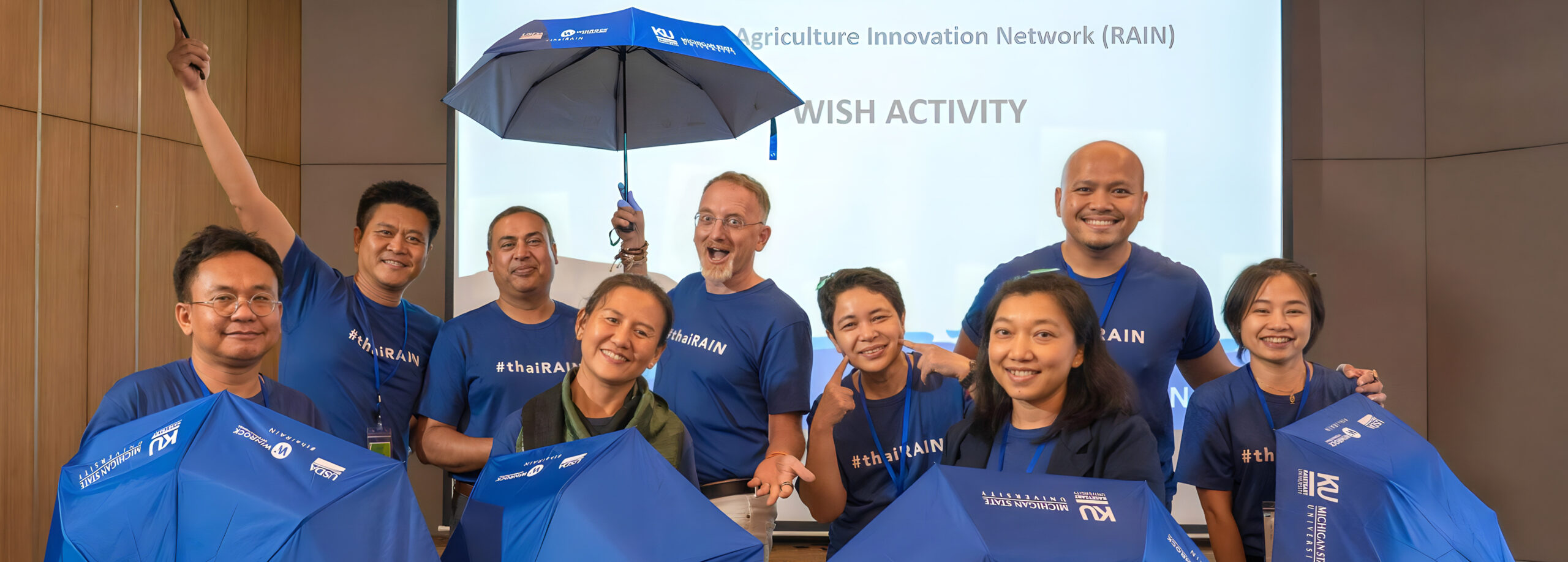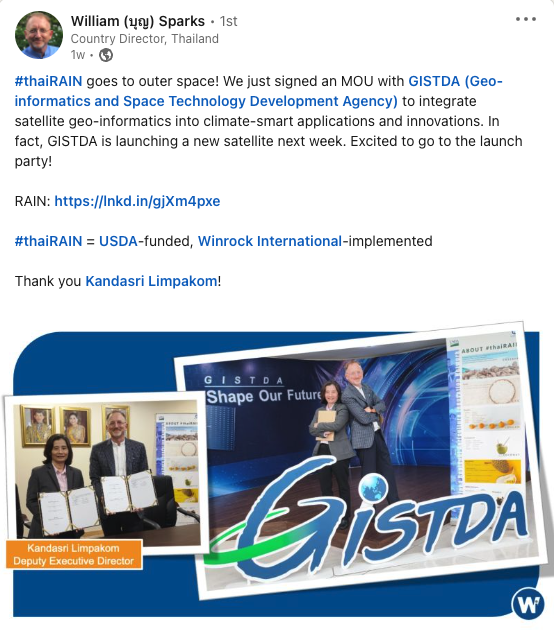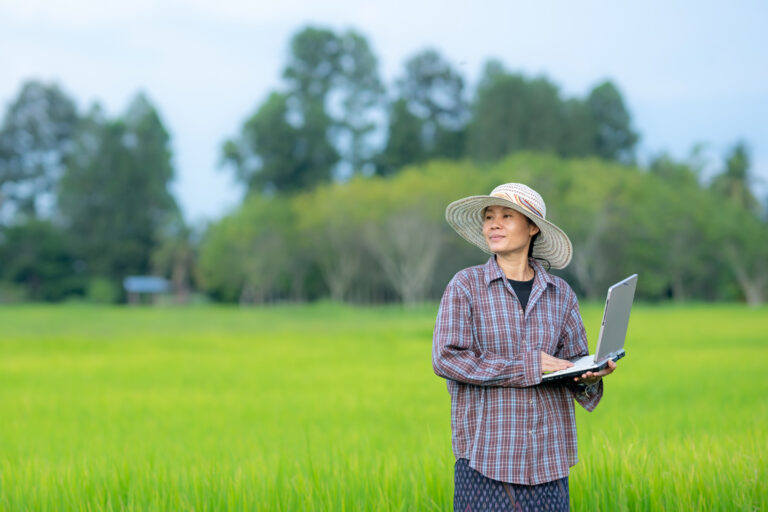
Perfect Storm: Winrock International’s USDA Thai RAIN Project scales up
Who’ll stop the rain? During the annual monsoons in Southeast Asia, the answer is: Nobody. And a new U.S. Department of Agriculture-funded project run by Winrock called Thai RAIN likes it that way. The one-year-old project has all the elements – including critical partnerships with local and regional researchers, farmers and innovators – to sustain a superstorm of agri-tech exploration, validation and uptake of climate-smart farming and food processing practices.
William Sparks, director of the Thailand Regional Agricultural Innovation Network (#ThaiRAIN) says success will be determined by how well the project and its partners are able to scale the agriculture technologies they co-identify, validate, market-test and share. The one-year old project uses a rigorous, evidence-based participatory approach it calls “5-S” to source, support, scale, sell and share climate-smart farm tech practices.
RAIN also works to strengthen the capacity of private and public sector stakeholders to disseminate validated tech and help farmers adopt it. In partnership with researchers from Michigan State University and Thailand’s Kasetsart University – a long-time collaborator with Winrock ─ RAIN is beginning to source, test and introduce climate-friendly practices in 11 provinces across three value chains that are critical both to food security and smallholders’ livelihoods: rice, cassava and fruit.
Goals include increasing farmer productivity and profitability and expanding trade opportunities in the Thai agriculture sector while simultaneously reducing greenhouse gas emissions and conserving Thailand’s valuable natural resources. By 2027, RAIN will promote 30 climate-smart innovations for adoption by 30,000 farmers, with the aim of reducing 76,000 tons of carbon dioxide equivalent. RAIN will also support the first USDA international climate hub for smart agriculture outside of the U.S. The hub will share best practices and research on climate-smart agriculture and help address climate change on a global scale.
“I’m very confident in the RAIN project,” said Chularat Tanprasert, executive vice president of Thailand’s National Science and Technology Development Agency, one of five major Thai and international partners that signed agreements with RAIN at a highly publicized launch event in Bangkok. “We will have several public and private partners … and each has expertise in different topics.” Other partners that signed agreements with RAIN at the event included the Digital Economy Promotion Agency, Harmless Harvest Co., Ltd., the Southeast Asian Regional Center for Graduate Study and Research in Agriculture, and CPS Weather Co., Ltd.
One example of the innovations being explored is an artificial intelligence-enhanced chatbot that can help farmers quickly diagnose various rice diseases, and which will be made available to interested farmers as a free application through input suppliers. As with other innovations assessed by the project and partners, the bot’s long-term success will depend on the sustainability of the business model – which depends on increases in sales of inputs to farmers. Increased sales would cover licensing fees and programming costs. As the model is tested, Thai RAIN works to facilitate linkages between market actors and support those linkages as needed.
In a recent meeting with the Mekong Institute, the RAIN team briefed U.S. Ambassador to Thailand Robert F. Godec on plans for the five-year project, and in another exciting development, RAIN recently announced a partnership with GISTDA – the Geo-Informatics and Space Technology Development Agency, described by Sparks as “the Thai version of NASA.” The agency will help Thai RAIN integrate satellite geo-informatics into climate-smart applications and innovations, and invited the RAIN team to attend a satellite launch. RAIN is collaborating with the Mekong Institute and the Southeast Asian Regional Center for Graduate Study and Research in Agriculture to scale tech regionally across Asia.

In addition to rice and cassava, the project has begun working with farmers producing high-value tropical fruits including coconut, durian, longan and mangosteen. Thai RAIN is supported by the USDA Food for Progress program.
Related Projects

